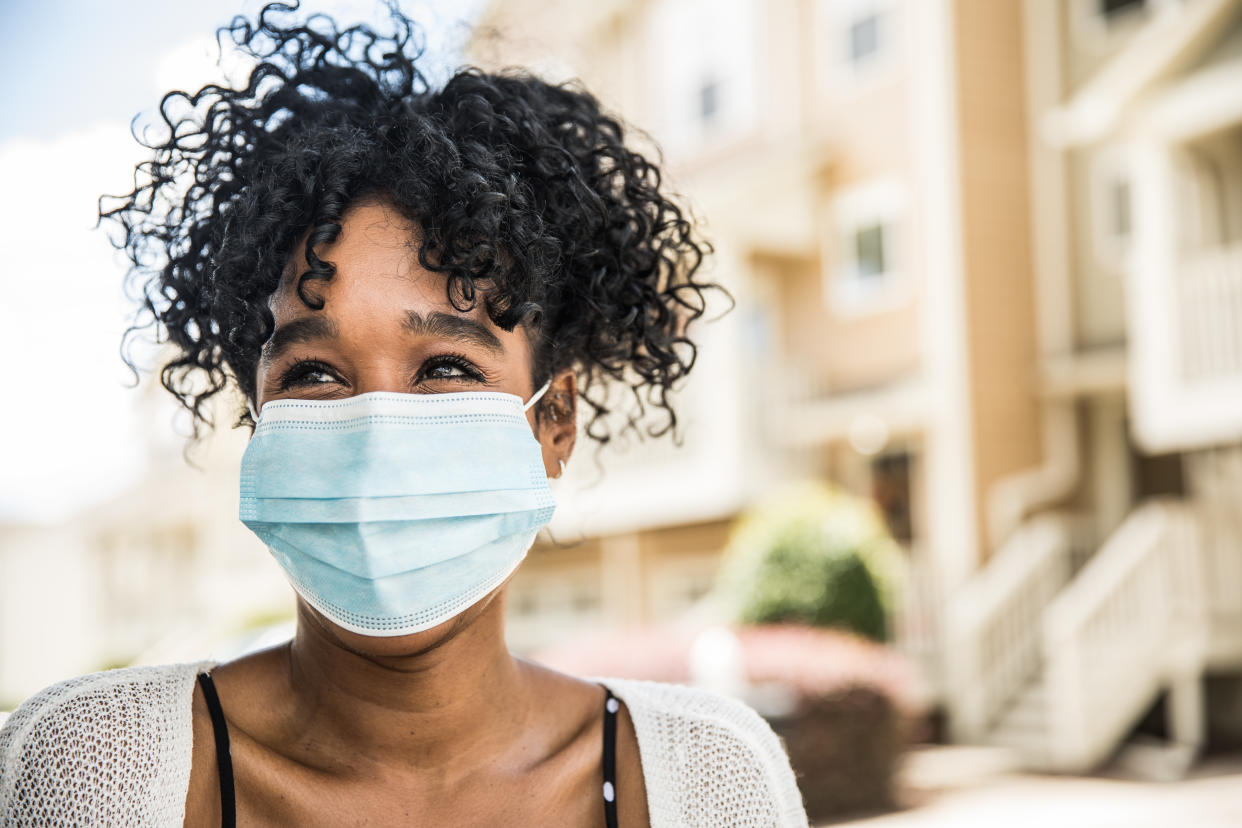How to protect skin while wearing a face mask, according to skin experts

In a bid to control the spread of the coronavirus pandemic, masks will be mandatory in shops and supermarkets in England from 24 July. They are already required in Scotland.
They already have to be worn on public transport and in areas where it’s not possible to keep the social distancing rules.
As more people will be wearing masks for longer periods of the day, our skincare regimes have come into question; what sort of cleanser should we use? How can we protect our noses from getting sore?
As a nation of people who have never had to wear masks as part of our everyday routines, it’s understandable that we have a few skincare questions.
Read more: Coronavirus anxiety is “fuelling anger”
GP and aesthetic doctor for skin-tech brand FOREO, Dr Raj Arora, recommends some additional parts of your skincare routine if you’re having to wear a mask for a long period of the day.
Firstly, adding a skin barrier protection cream to your face ahead of putting on your mask for the day will help to “reduce irritation and sores from continual applied pressure”, Dr Arora explains.
As far as our usual morning and evening skincare routines go, Dr Arora says that keeping up with a “simple and consistent routine” is the best thing you can do for your skin during this time. That includes cleansing with a “calming and soothing” cleanser.
Although retinol is having its moment in the spotlight for its anti-ageing properties, the skin expert suggests that it might be worth leaving harsher acids out of your routine for the time being.
“These can leave the skin sensitive and more prone to chafing and breakdown when continued pressure is applied,” she explains.
Read more: Third of young people struggling to support partners in lockdown
Is there anything water isn’t great for? The answer is no, no there’s not. Hydration is still seen as a key part of our everyday skincare routines in a coronavirus adjacent world.
Speaking about the importance of H2O, Dr Arora says: “Hydration is also key. The skin’s barrier is the outermost layer of the skin (stratum corneum) and it shields skin from bacteria and irritants. It also seals in moisture and hydration. To ensure the barrier is healthy, it is important to drink plenty of fluid throughout the day (at least two litres).”
If you’re already suffering from a sore face because of your personal protective equipment (PPE), there are some things you can do to help at the recovery stage, too.
“To help treat any nasty bruising from the masks ensure that you have a diet rich in Vitamin C as this is essential for collagen production. Collagen encourages the renewal of cells and therefore helps repair wounds on the skin,” explains Dr Arora.
In sensitive areas – like the bridge of the nose – it might also be worth applying a little bit of gauze as an extra layer of protection for thinner areas of skin.



